Selected Biography
-
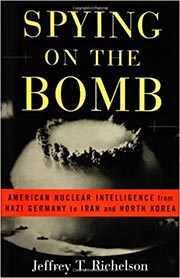
Spying on the Bomb: American Nuclear Intelligence from Nazi Germany to Iran and North Korea
by Jeffrey T. Richelson
This book provides a comprehensive, fascinating history of United States intelligence on any nation that appeared to have a nuclear weapons program from 1944 until 2005. -
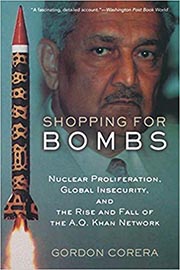
Shopping for Bombs: Nuclear Proliferation, Global Insecurity, and the Rise and Fall of the A.Q. Khan Network
by Gordon Corera
This book provides a detailed account of the activities of Pakistani scientist, A. Q. Khan, the infamous international nuclear proliferator. The author, a security correspondent for British Broadcasting Company news, traces the complex story of Khan’s career and his global network for proliferation of nuclear technology. -
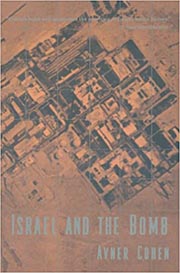
Israel and the Bomb
by Avner Cohen
The story of the formative years of Israel's nuclear program, from the founding of the Israeli Atomic Energy Commission in 1952, to the alliance with France that gave Israel the sophisticated technology it needed, to the failure of American intelligence to identify the Dimona Project for what it was, to the negotiations between President Nixon and Prime Minister Meir that led to the current policy of secrecy. -
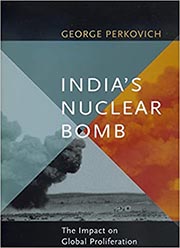
India's Nuclear Bomb: The Impact on Global Proliferation
by George Perkovich
India's Nuclear Bomb is the definitive, comprehensive history of how the world's largest democracy, the nation of Gandhi, has grappled with the twin desires to have and to renounce the bomb. Each chapter contains significant historical revelations drawn from scores of interviews with India's key scientists, military leaders, diplomats and politicians, and from declassified U.S. government documents and interviews with U.S. officials. -
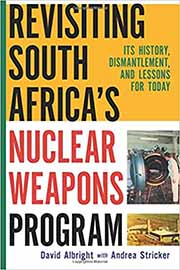
Revisiting South Africa's Nuclear Weapons Program: Its History, Dismantlement, and Lessons for Today
by David H Albright with Andrea Stricker
The book explores further South Africa’s decision to abandon its nuclear weapons. Drawing upon previously secret information to provide the first comprehensive, technically-oriented look at South Africa’s nuclear weapons program; how it grew, evolved, and ended. -
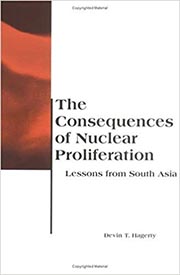
The Consequences of Nuclear Proliferation: Lessons from South Asia
by Devin T. Hagerty
In this book, Devin Hagerty examines the relationship between two emerging nuclear powers--India and Pakistan--to assess how nuclear weapons have changed their foreign and military policies. Even before India and Pakistan tested nuclear weapons in 1998, both countries believed that the other was capable of assembling a bomb. -
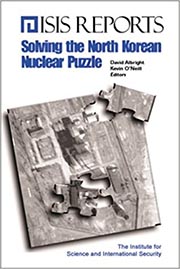
Solving the North Korean Nuclear Puzzle
by David Albright (Editor)
The book gives an overview of the events leading up to the negotiation of the Agreed Framework in 1992 and 1993 and the subsequent efforts to implement it through 2000. It outlines the obstacles the IAEA faced in trying to ascertain North Korean compliance and gives information about the country's plutonium stocks. -
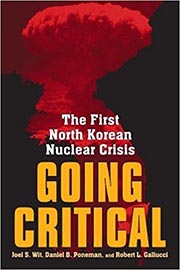
Going Critical: The First North Korean Nuclear Crisis
by Joel S. Wit, Daniel B. Poneman, Robert L. Gallucci
In Going Critical, three former U.S. officials who played key roles in the nuclear crisis trace the intense efforts that led North Korea to freezeÑand pledge ultimately to dismantleÑits dangerous plutonium production program under international inspection. Drawing on international government documents, memoranda, cables, and notes, the authors chronicle the complex web of diplomacy--from Seoul, Tokyo, and Beijing to Geneva, Moscow, and Vienna and back againÑthat led to the negotiation of the 1994 Agreed Framework intended to resolve this nuclear standoff. -
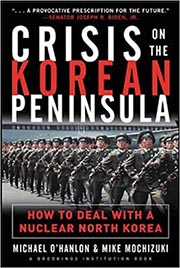
Crisis on the Korean Peninsula: How to Deal With a Nuclear North Korea
by Michael O'Hanlon, Mike M. Mochizuki
In Crisis on the Korean Peninsula, Michael O'Hanlon, a Senior Fellow at Brooking and visiting lecturer at Princeton, and Mike Mochizuki, endowed chair in Japan-US Relations at G.W. University, not only examine this issue in detail but also offer a comprehensive blueprint for diffusing the crisis with North Korea. -
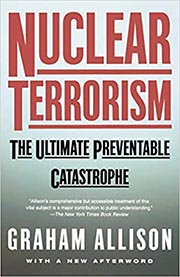
Nuclear Terrorism: The Ultimate Preventable Catastrophe
by Graham Allison
The United States once relied on the threat of mutually assured destruction to deter the Soviet Union from launching a nuclear strike. But in today's fragmented world, a new strategy is needed, especially with nuclear material vulnerable to theft or sale through black-market channels. -
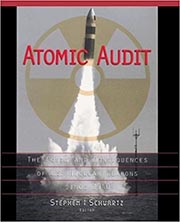
Atomic Audit: The Costs and Consequences of U.S. Nuclear Weapons Since 1940
by Stephen I. Schwartz
Based on four years of extensive research, Atomic Audit is the first book to document the comprehensive costs of U.S. nuclear weapons, assembling for the first time anywhere the actual and estimated expenditures for the program since its creation in 1940.